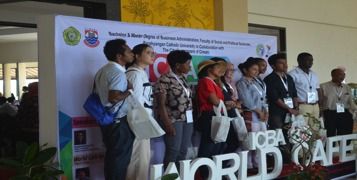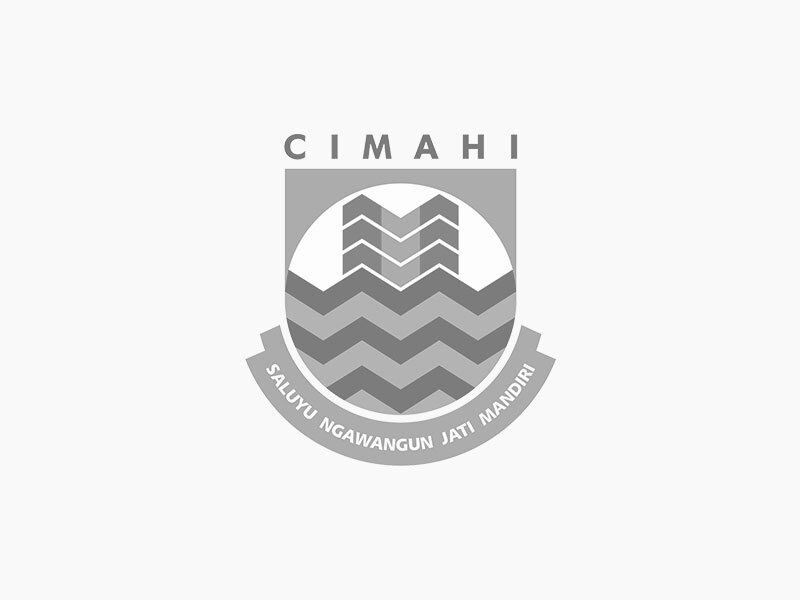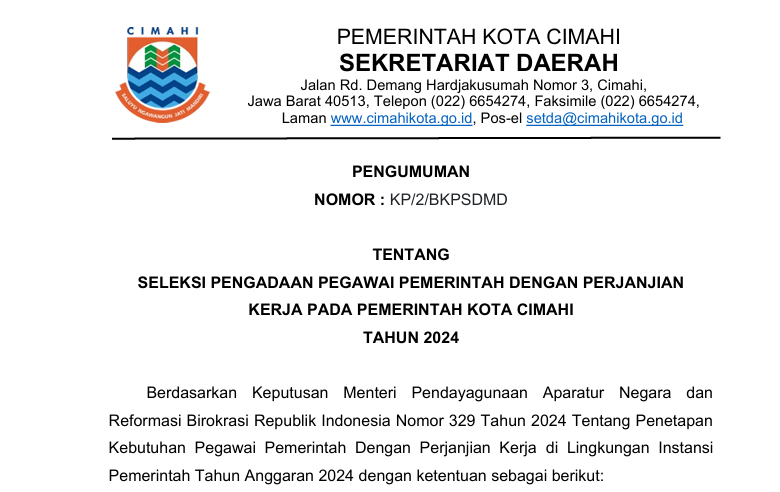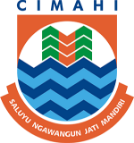- 15 Okt 2024 • Pentingnya Pembinaan bagi Calon Pengantin untuk Atasi Stunting di Cimahi
- 15 Okt 2024 • Cara BKPSDMD Kota Cimahi Tangkal Para ASN dari Bahaya Narkotika
- 10 Okt 2024 • Tingkatkan Layanan Surat Keterangan Penelitian dan PKL, Bakesbangpol Kota Cimahi...
- 10 Okt 2024 • Dinkes Kota Cimahi Komitmen Tangani Kasus HIV-AIDS
- 10 Okt 2024 • Pj Wali Kota Cimahi Tinjau Lokasi Longsor Cibogo

World Cafe of Social Entrepreneurship

The growth of economy is not always balanced with equal distribution of income and wealth. The World Bank on the 2016 annual meeting explained that since 2008, there had globally been a trend of increase in the income gap. Meanwhile, a report by OECD in 2014 mentioned that the rise in income inequality would cause a significant decrease of per capita income. Therefore, we need breakthrough in the effort to reach two important goals which are economic growth and minimization of income inequality, and one of the approaches to do it is social entrepreneurship.
Santos (2009) stated that social entrepreneurship was initially started in developing countries. However, non-commercial entrepreneurship is also evolving in developed countries. Despite various definitions of social entrepreneurship, everything has the same core meaning which is an effort to solve social problems and alleviate poverty by using entrepreneurship approach to create social and innovation value. Globally, there have been several practices or development processes of social entrepreneurship while regionally, these are implemented in the hope of realizing economic integration among members of ASEAN (the Asia Foundation, 2015).

Picture 1.
Foreign Participants of World cafe and International Conference of Business Administration year 2018 at Cimahi Technopark
Social entrepreneurship usually focuses on poor citizens in both urban and rural areas. In the former, it is emphasized on the effort of health improvement (Leeuw: 1999), garbage organization (Wijayanti and Syryani; 2015 and Singhirunnusorn et al: 2012), youth and education (Jacobi: 2006). Meanwhile, in the latter, social entrepreneurship already has the capability to create jobs, empower communities, develop value chain on the sector of agriculture (Raikundalia, 2017; Ellis et al., 2012; Tetzschner and Herlau: 2003), develop the sector of tourism (Cho: 2006 and Zhao et al.: 2011), manage forests (Shahidullah and Haque: 2016) and manage coastal environment and fisheries (Ruwindrijarto: 2002).


Picture 2.
Opening and Presentation of Introduction to Social Entrepreneurship
Based on this variety of social entrepreneurship sectors and activities, the Local Government of Cimahi City and Undergraduate and Postgraduate Studies Program in Business Administration of Parahyangan Catholic University organized International Conference of Business Administration in 2018 (ICBA 2018) on 27th - 29th September 2018. To provide more synergy with the conference, International Office of UNPAR also organized a world cafe of social entrepreneurship. The world cafe event was simultaneously conducted at the first floor, in the co-working space for business incubation of Cimahi Technopark.


Picture 3.
Participants Working in Groups in Making Social Entrepreneur Business Model
This event is part of the INSPIRE European Union Erasmus + Grant to higher institutions in Indonesia. UNPAR has been succesfully obtained the programe with some other Indonesian universities. The aim of the world café is to disseminate and facilitate students who want to explore and envolve in the world of socio entrepreneurship. This event was steered by Mr. Elivas Simatupang (Regional Development Planning Board of Cimahi Ciry) and Ms. Fiona Ekaristi (Business Faculty of UNPAR), accompanied by Mrs. Ratih Indraswari (International Office of UNPAR), Mrs. Tutik Rachmawati (Public Administration Faculty of UNPAR) and Mrs. Maria Widyarini (Head of MBA Program of UNPAR). At this event Mr. Simatupang presented an introduction of the concept of social entrepreneurship. To be more local and relevant to Indonesia context, he presented two case studies of developing previously discriminated communities in Cimahi Municipality. As part of excercise participants were then divided into several working groups following five steps of making an SE business model namely semphatize, define, ideate, prototype and test (Vial, 2018).
Situated in a real common room for tenants of business incubation programe of Cimahi municipality, there were 80 domestic lecturers, domestic and foreign students who participated in the event. Foreign participants were originated from 11 countries of Australia, Germany, France, Sierra Leone, Zimbabwe, Pakistan, Philippines, East Timor, Madagascar, China and Thailand. There were also representatives of partner universities in the INSPIRE of Erasmus + Programme namely Udayana University Bali, North Sumatra University of Medan, and Andalas University of Padang.
Interestingly, as part of Cimahi zerro waste programme, for the whole events there were no plastic-mineral bottels used.



Picture 4.
Participants Presenting Their SE Business Models
Due to its flexibilty, when given a chance to work in randomized-group to make a business plan for social entrepreneurship, participants came up with relevant and local context problems in Indonesia and their countries of origin as well. A student from Australia with his fellow Indonesian students see waste as a paramount problem in Bandung city, thus they presented an idea of waste bank to reduce plastic waste and promoting environment awarness campain through production of T-Shirt and eco-friendly merchandise.
A emphaty based idea is given by a participant from Burundi who deliver a business idea of providing tools to help disabled people. A social and economic problems of an african country because of brain drain and young men leaved their (wifes) in vilages in Sierra Leone was taken as an exampe in the discussion. The Sierra Leone students delivered an idea of developing craft business among female villagers. The idea is to provide livelihood and orgnanised by a local community. For the products, the group proposed using the name of their region (place) as their brand to promote positive image and optimism among the villigers.
There were also an announcement of SE competition for students in Jakarta and Bandung area extended by Ms. Fiona and Mrs. Ratih. The competition will be embarked in the beginning of 2019.


Picture 5
World Cafe Participants Joint in Playing Traditional Musical Instruments and Assisted Local People Collecting Fruits for Serentaun (Traditional Thanksgiving Day)
Before enjoying the Indonesian culinary, participants were aslo asked to see directly the ongoing incubation process and its facilities provided by local government of Cimahi municipality. At the closing day, the participants were given a chance to visit one of Cimahi Municipality best practices of SE Development in Cireundeu traditional village. Interestingly, urged by curiosity of the implementation of SE concept, some of the world cafe participants joint a live in programe and spent one night in residents' houses. They emersed the preparation week of traditional Serentaun (Thanksgiving of Sunda Wiwitan community) which was forbiden to be celebrated during the New Order (Orde Baru) era.
Elivas Simatupang @2018
Berita Terkini

15 Oktober 2024

15 Oktober 2024

10 Oktober 2024
Artikel Populer

03 Oktober 2024

03 Oktober 2024

27 September 2024
Pengumuman

14 Oktober 2024

10 Oktober 2024

01 Oktober 2024
